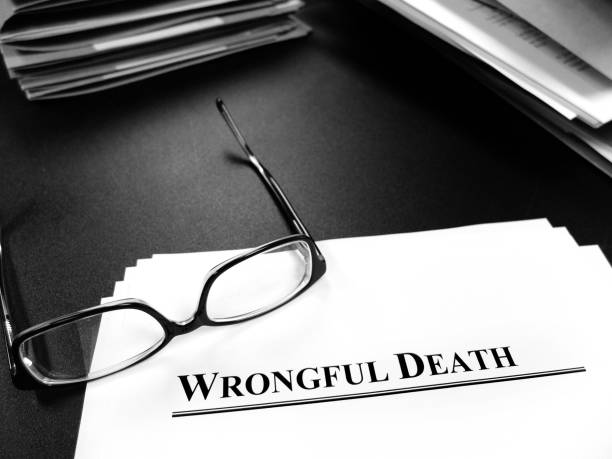A wrongful death lawsuit is filed against a party whose negligence led to the death of a person. This party can be any party, including the driver of a car, a bartender who served too much alcohol, a doctor who failed to diagnose a medical condition, or a business owner who could not maintain the property. The surviving spouse or children of a deceased person may also file a lawsuit on their behalf. However, the state you live in will determine the specific laws that apply to your case.
A wrongful death lawsuit is brought against a person or company responsible for the death of a person or entity. A wrongful death lawsuit is obtained after a criminal trial in some states and is based on similar evidence. For car accident fatalities, the victims’ families may be able to file a pending severance claim, in which case the deceased person’s representative can file a claim.
Wrongful death cases involve all types of fatal accidents, from car crashes to medical malpractice. Wrongful death claims can also include product liability cases. In these cases, a company or individual’s negligent or intentional actions can lead to death. Wrongful death claims can be brought by immediate family members or by parents of unmarried children. Although wrongful deaths can be complicated, a qualified team of attorneys and a thorough approach to your case can help you secure compensation.
If you want to file a wrongful death lawsuit, you must have a valid cause of action. Criminal death cases can involve any fatal accident, including medical malpractice, product liability, and even a product defect case. The defendant can be found legally liable for your loved one’s death if you are responsible for the resulting injuries. The surviving family members can also file a wrongful loss claim for the wrongful death of a loved one.
In some cases, a wrongful death claim comes after a criminal case. Unlike in a criminal case, wrongful death claims use similar evidence but have a lower standard of proof. In wrongful deaths cases, the surviving family members have the right to sue a person’s estate to lose a loved one. A wrongful death lawsuit can involve any fatal accident. It can also include product liability cases or medical malpractice. If a person or company causes the death of a person, they may be liable for wrongful death. If the criminal act is the cause of the end, a surviving family member can file a wrongful-death lawsuit against the company or the physician who caused the death. These cases often involve a victim’s spouse or child and can be filed against the other party in civil court.
The wrongful death lawsuit can also include economic and non-economic damages. In some cases, the surviving spouse or child’s estate can be awarded a lump-sum amount to lose their support and parental guidance. In some cases, the surviving spouse and children may also recover monetary damages for pain and suffering that have contributed to the death. If a loved one has been the victim of a wrongful act, the family may have a legal claim against the person responsible for the incident.
A wrongful death lawsuit can be filed when another person’s negligence or misconduct has killed someone. It can also involve a criminal trial. The two types of cases share the same standard of proof, but the wrongful-death lawsuit is generally handled under a lower standard of evidence. A wrongful death case may be settled in a court of law or a civil court. The surviving family may file a statutory suit when a wrongful death occurs.
Sadly, a wrongful death lawsuit can be complicated to file and prove. The surviving family members of the deceased may be struggling to pay the funeral expenses, medical bills, and other costs. Depending on the circumstances, a wrongful death lawsuit can be filed against the person responsible for the death or the estate of the deceased person estate. A wrongful death lawsuit can be filed against a person who is dead or a company responsible for the loss.

Leave a Reply